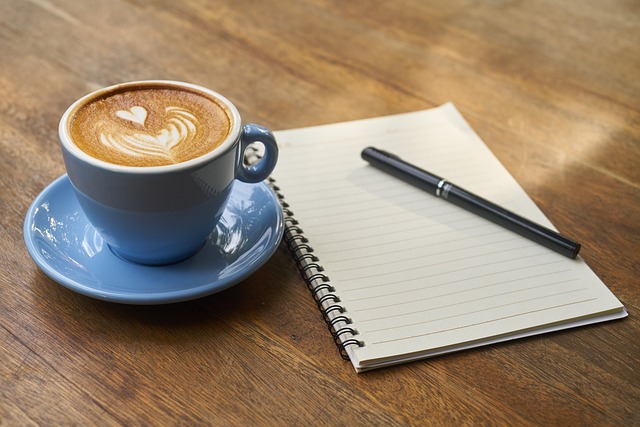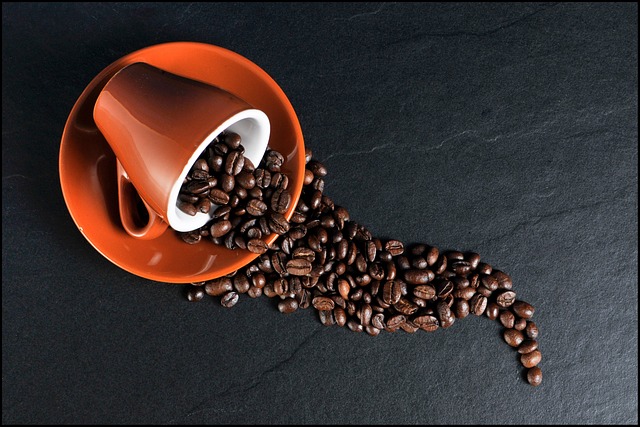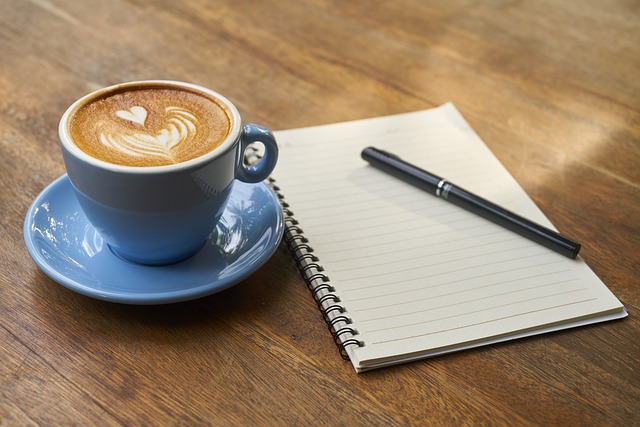Welcome, tea enthusiasts and curious minds, to the world of tea time truths! If you’ve ever wondered about the caffeine content of your beloved brew, you’ve come to the right place. Today, we delve into the depths of tea leaves, exploring the varieties that pack the most punch when it comes to caffeine. Prepare for an enlightening journey, as we uncover the secrets behind which teas can give you that delightful energetic boost. Whether you’re a steadfast green tea aficionado or an adventurous soul willing to sip on the unknown, we’ve got all the information you need to choose your tea wisely. So, grab your favorite mug and get ready to sip up some knowledge – the tea time truths await!
1. The Surprising Buzz: Discovering Which Teas Pack the Most Punch in Your Cup
When it comes to finding a hot beverage that is not only soothing but also energizing, tea often steals the show. But did you know that not all teas are created equal when it comes to delivering that much-needed boost? Let’s delve into the world of tea and uncover which varieties pack the most punch to power you through your day.
1. Matcha Tea: Known for its vibrant green color, matcha tea is made by grinding whole green tea leaves into a powder. This unique preparation method ensures that you consume the whole leaf, resulting in a potent concentration of antioxidants and caffeine. A cup of matcha tea offers a smooth yet robust flavor, along with an invigorating kick that is certain to jumpstart your morning.
2. Yerba Mate: Originating from South America, yerba mate is an herbal tea with a rich and earthy flavor. Packed with natural compounds like mateine, it provides a gentle stimulation without the jitters. Yerba mate also contains essential vitamins and minerals, making it a perfect choice for those seeking a well-rounded energy boost.
3. Pu-erh Tea: Hailing from China, pu-erh tea has gained popularity due to its distinct earthy taste and remarkable health benefits. This fermented tea undergoes a unique aging process that intensifies its flavor and potency. With higher caffeine content compared to other teas, pu-erh offers a revitalizing effect that can enhance focus and mental clarity.
Discovering which tea packs the most punch is a journey worth embarking on. So grab your favorite mug and start exploring the delightful world of tea, one energizing cup at a time!

2. Unveiling the Secrets: Debunking Common Myths About Tea and Caffeine
There are many misconceptions floating around when it comes to tea and its caffeine content, so let’s set the record straight and debunk some common myths. First and foremost, not all tea contains the same amount of caffeine as a cup of coffee. While it’s true that tea leaves naturally contain caffeine, the brewing process significantly influences its final content. Black tea generally has the highest caffeine content, ranging from 40-70 milligrams per cup, while green tea contains around 20-45 milligrams. Herbal teas such as chamomile or peppermint are naturally caffeine-free.
Another myth often heard is that tea is entirely dehydrating due to its caffeine content. In reality, while caffeine has mild diuretic properties, the overall hydrating effects of tea counterbalance this. Drinking tea can contribute to your daily fluid intake, helping you stay properly hydrated. Furthermore, it’s important to note that the amount of caffeine consumed in moderation through tea doesn’t lead to dehydration or significant adverse effects, especially when compared to popular caffeinated beverages like energy drinks or soda.

3. A Jolt of Energy in Every Sip: Unearthing the Truths Behind High-Caffeine Tea Varieties
When it comes to seeking an invigorating beverage, many turn to coffee or energy drinks. However, there is a lesser-known option that might just give you the energy boost you need: high-caffeine teas. These teas offer a unique and refreshing alternative, providing a revitalizing jolt with every sip.
So, what sets high-caffeine teas apart? Firstly, it’s important to note that these teas are typically made from leaves derived from the Camellia sinensis plant, just like traditional teas. However, what distinguishes them is the unique cultivation process and the specific tea varieties used. High-caffeine teas often include leaves from different cultivars or those grown in specific regions known for their high caffeine content. These teas are then harvested at specific times and undergo a meticulous production method that helps retain the natural caffeine levels, resulting in an energizing brew.
- Vibrant Flavor Profiles: Don’t let the high caffeine content fool you into thinking these teas lack flavor. On the contrary, high-caffeine teas come in a range of captivating flavor profiles that cater to different taste preferences. From robust and earthy black teas to delicate and floral green teas, there’s a high-caffeine option for every tea lover.
- Enhanced Focus and Alertness: With their elevated caffeine levels, high-caffeine teas have the ability to provide a quick and sustained burst of energy. By incorporating these teas into your daily routine, you may experience improved mental alertness and enhanced focus, making them an ideal choice for those busy mornings or sluggish afternoons.
- Natural Antioxidants: Like their traditional counterparts, high-caffeine teas are packed with beneficial antioxidants that can help promote overall well-being. These antioxidants can aid in fighting free radicals and supporting a healthy immune system, while also providing a boost to your daily nutrient intake.
4. Black Tea’s Mighty Kick: Exploring the Robust Caffeine Content of the World’s Favorite Brew
Black tea, beloved by many for its bold flavors and comforting warmth, packs quite a punch when it comes to caffeine content. While it may not be as strong as a cup of coffee, black tea still contains a significant amount of this energizing substance, making it a go-to choice for those needing a little boost. Here’s a closer look at the robust caffeine content found in the world’s favorite brew:
1. Rich in caffeine: Black tea is known for its higher caffeine content compared to other types of tea. On average, an eight-ounce cup of black tea contains around 40-70 milligrams of caffeine, depending on the specific variety and brewing method. This makes it a great choice for those looking to start their day with a gentle jolt of energy.
2. Keeping you alert: The caffeine in black tea stimulates the brain and central nervous system, enhancing focus, alertness, and even mood. It can provide a sense of wakefulness without the jitters or crash often associated with other caffeinated beverages. Whether you need to stay focused during a jam-packed workday or want a pick-me-up in the afternoon, a cup of black tea can offer that mighty kick to keep you going.
5. Green Tea’s Unexpected Boost: How This Ancient Elixir Can Elevate Your Focus and Alertness
Green tea has been cherished for centuries for its numerous health benefits, but did you know it can also give your focus and alertness a surprising boost? This ancient elixir is packed with natural compounds that can enhance cognitive function and keep you sharp throughout the day.
So, how exactly does green tea work its magic on your brain? It’s all thanks to a powerful amino acid called L-theanine, which is abundant in green tea leaves. L-theanine has been found to promote relaxation without causing drowsiness, resulting in a calm and focused state of mind. When combined with the moderate amount of caffeine found in green tea, L-theanine provides a unique blend of relaxation and alertness that can improve concentration and mental performance. Say goodbye to those mid-afternoon slumps!
Not only does green tea have the potential to boost your focus and alertness, but it also contains a wealth of antioxidants that benefit your overall brain health. These antioxidants help protect your brain cells from damage caused by free radicals, reducing the risk of cognitive decline and age-related diseases such as Alzheimer’s and Parkinson’s. Additionally, green tea has been associated with improved memory and attention span, making it a valuable asset for students and professionals alike.
6. The Stealth Caffeine Bomb: Revealing the Hidden Potency of White and Oolong Tea
When we think of caffeine, our minds often go straight to coffee or energy drinks. However, there’s a hidden caffeine bomb that often gets overlooked: white and oolong tea. These two varieties might seem innocent and mild with their delicate flavors, but don’t be fooled. They pack a punch when it comes to caffeine content, and we’re here to reveal their hidden potency.
1. White tea: This delicate tea, made from young tea leaves and buds, may appear light and innocent, but it holds a surprising caffeine content. Though it contains less caffeine than coffee, white tea still provides a subtle energy boost without the jitteriness that sometimes comes with coffee consumption. Its smooth and mild taste, coupled with a moderate amount of caffeine, makes it a perfect option for those who want to enjoy tea without a major spike in energy levels.
2. Oolong tea: Often praised for its unique flavors and aromas, oolong tea also carries a stealthy caffeine bomb within its leaves. Falling between the caffeine levels of black and green tea, oolong provides a balanced and sustained energy boost. Its partially oxidized leaves give it a complex taste profile, ranging from light and floral to rich and toasty. So, whether you’re looking for a pick-me-up during the day or a cozy cup to wind down with, oolong tea can cater to your caffeine needs without overwhelming your senses.
7. Waiting in the Wings: Lesser-Known High-Caffeine Tea Options You Should Try
When it comes to high-caffeine tea options, there are a few popular varieties that steal the spotlight. However, there are also some lesser-known options waiting in the wings, ready to surprise you with their energizing effects and unique flavors. If you’re a tea lover looking to explore beyond the usual suspects, here are some tea varieties that you should definitely try:
Yerba Mate: Originating from South America, yerba mate is a powerhouse of energy. Packed with natural caffeine, it provides a stimulating kick without the jittery feeling. This tea is known for its distinct earthy and herbaceous flavor, with a hint of bitterness. If you’re looking for a tea to boost your focus and productivity, give yerba mate a try.
Ginseng Oolong: Combining the goodness of ginseng and oolong tea, this unique blend offers both mental alertness and relaxation. Ginseng is known for its adaptogenic properties, which can enhance your stamina and reduce stress. The oolong tea base adds a floral and slightly nutty flavor to the mix. If you’re looking for a tea that can invigorate your body and calm your mind, ginseng oolong is a great choice.
8. Decaf Dilemma: Understanding How the Caffeine Content of Tea Varies and What It Means for You
Tea is a popular beverage enjoyed by millions across the globe. But did you know that the caffeine content in tea can vary significantly? This decaf dilemma can be quite puzzling, especially if you’re trying to limit your caffeine intake. Let’s delve deeper into this issue and understand how the caffeine content of tea varies and what it means for you.
When it comes to tea, there are different factors that influence its caffeine content. Here are a few key considerations:
- Type of Tea: Black, green, white, oolong, and herbal teas all contain varying levels of caffeine. While black tea generally has the highest caffeine content, green tea usually contains less. Herbal teas, on the other hand, are typically caffeine-free. So, if you’re looking for a decaf option, herbal teas like chamomile or peppermint can be a great choice.
- Brewing Method: The way you brew your tea can also impact its caffeine content. Steeping tea for a longer duration generally releases more caffeine into the cup, while a shorter steeping time may result in a milder cup of tea.
Understanding these nuances can help you make informed decisions about your tea choices, whether you’re a caffeine lover or seeking a low-caffeine option. Remember, it’s always a good idea to consult with your healthcare provider if you have any specific concerns about caffeine consumption and its potential effects on your health.
Frequently Asked Questions
Q: What teas have the most caffeine?
A: When it comes to teas packed with caffeine, there are a few varieties that take the crown.
Q: Which tea tops the caffeine charts?
A: If you’re seeking an energy boost, black tea reigns supreme! This robust brew is known for its high caffeine content, making it a go-to choice for those needing a kickstart in the morning.
Q: Are there any other teas with notable caffeine levels?
A: Indeed! Green tea also holds its own when it comes to delivering a caffeine punch. Although its levels are slightly lower than black tea, this vibrant and refreshing drink can still offer a much-needed jolt.
Q: What about white tea? Does it have any caffeine?
A: White tea, in comparison to its black and green counterparts, has a more subtle caffeine presence. While it may not wake you up quite as much, white tea still provides a soothing and delicate flavor that many tea enthusiasts adore.
Q: Are there any herbal teas that contain caffeine?
A: Believe it or not, herbal teas are usually caffeine-free. These delightful infusions, made from herbs and flowers, offer a wide array of tastes and therapeutic benefits without the stimulation caffeine provides.
Q: How does the caffeine content of tea compare to coffee?
A: Generally, the caffeine content in tea is lower than that in coffee. However, it’s important to note that the exact caffeine levels can vary depending on factors such as brewing time, tea variety, and personal preference.
Q: Can the way I brew my tea influence its caffeine content?
A: Absolutely! If you’re looking to boost caffeine levels in your tea, brewing it for a longer duration and using hotter water can be helpful. But don’t forget, brewing tea is an art, so it’s always a good idea to experiment with different methods to find your perfect cup.
Q: Is caffeine good or bad for my health?
A: Like most things, moderation is key. While caffeine can give you a temporary energy boost, excessive consumption can lead to side effects like jitteriness or disturbed sleep. It’s important to listen to your body and find the right balance that works for you.
Q: How can I enjoy tea without the caffeine?
A: If you’re seeking a caffeine-free alternative, herbal teas are a great option. Moreover, there are specific “decaffeinated” versions of popular teas available in many stores. So, even if you’re caffeine-sensitive, you can still enjoy a delicious cup of tea without worry.
Q: Any final tips for tea enthusiasts looking to make the most of their caffeine experience?
A: Absolutely! Remember to have fun exploring the vast world of teas and trying different varieties, as each can offer a unique flavor profile and caffeine level. It’s all about finding your personal tea time bliss!
To Conclude
In conclusion, understanding the caffeine content in different teas is essential for all tea lovers out there. Now that you know which teas pack the most caffeinated punch, you can confidently choose the perfect brew to suit your needs. Whether you crave a revitalizing morning kickstart or a gentle afternoon boost, there’s a tea out there for every preference. From potent black teas like Assam or Darjeeling to vibrant green teas such as Matcha or Sencha, the world of tea holds endless possibilities for caffeine enthusiasts. Remember, moderation is key, as too much caffeine consumption might have its downsides. So, embark on your tea time journey armed with this knowledge and savor every sip of your favorite energizing beverage. Happy brewing!







